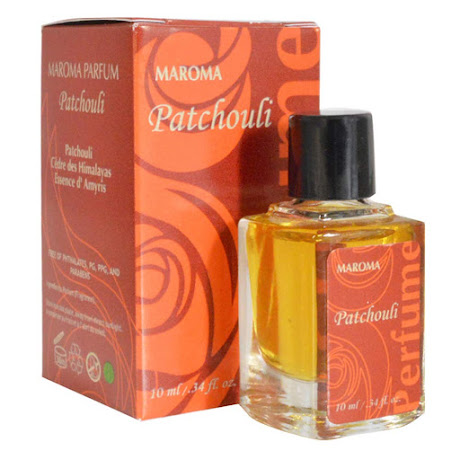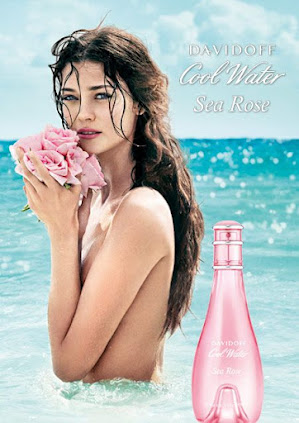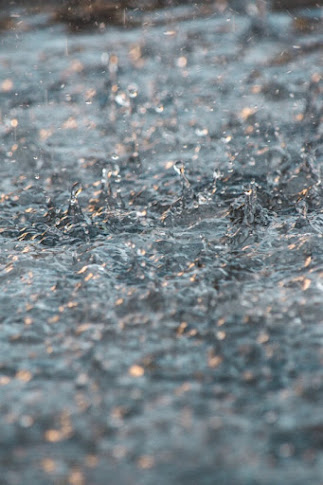12/31/22
2023: Every Pineward Perfume To Be Reviewed
12/27/22
My (Very Late) Quick Take on the 2018 Guide
- Roja Dove is the new Creed. Turin rates every Roja Parfums entry as "routine," and says little else about them. Reading between these sparse lines, it seems he's annoyed by the brand's pretenses and its price-to-quality ratio. As with Creed, I wonder how much of his opinion is fueled by personal bias instead of an actual distaste for the perfumes.
- Turin makes an interesting observation about several niche brands and what he suspects are perfumes made by A.I. (Artificial Intelligence). He concludes that some of these newer fragrance lines, which smell "samey" and bland, are being formulated by computer algorithms instead of people, and he points out that most of them don't even smell finished. If true, this is disturbing.
- Inexplicably, Turin rates Kerosene frags highly. This poses a credibility problem, especially when considering his history of trashing Creed. I've only tried two Kerosene frags, and they were both so indescribably awful that I remain rueful about trying any others. To call them "amateur" would be an insult to amateur perfumers everywhere. Copper Skies is an unwearable blotch of terpenic foulness, and Creature was a degraded version of Crest toothpaste. I'd rather bathe in a vat of Love in White than wear a single spritz of Copper Skies. Reading Turin's reviews of this house were the biggest WTF moments.
- Perfumery has become perfunctory. Edmond Roudnitska, great historical perfumer, has thirteen perfumes to his name, while Alberto Morillas has over four hundred. People are just churning them out these days, and it's impossible to see how this degree of output could be worth it. The perfumery explosion has proven to be a supernova, and when it started back in the 2000s, people had no idea that it would continue into the twenties unabated. At this point the question of "newness" is worth a look, because how much of what we smell is innovative and interesting and not superfluous and conformist?
12/11/22
Revisiting Nautica Voyage After Ten Years
12/2/22
Ungaro Pour L'Homme III (Emanuel Ungaro)
For the full rundown on exactly what the Ungaro fragrances are, read my review of Ungaro Pour L'Homme II, which explains that this house issues re-badged Chanels. Ungaro pour L'Homme I and II were both discontinued years ago, but III is still produced and distributed via Interparfums. I've always believed that III was the brand's bestseller, because why else would it live on? The first two fragrances were familiar throwbacks, aromatic lavenders with robust Italianate flourishes of woods, herbs, and musks. But III was the only one of the bunch that was truly weird, and it has continued to captivate imaginations since its release in 1993.
11/17/22
Paris Hilton for Men (Parlux)
"The fig leaf note is my favorite part of the scent, and it complements the sage and mango well. This is fresh but not sweet, aromatic but not weirdly herbal. Gives you a fresh feeling without being soapy. It's unusual in that it feels like a cologne yet has no citrus notes."
This is exactly right. I suspect there's a smidge of Nonadienal/Nonadienol in the formula, potent violet leaf materials that impart a cucumber smell when used judiciously. As several reviewers note, this fragrance's fruity character is rendered in a style that is decidedly unisex in nature, and could easily be worn by either gender. Its greenness prevents it from veering too far into feminine territory, while its fruitiness and the absence of any overtly woody notes keep it from being obviously masculine.
The weirdly sour-green cucumber water drydown of this stuff is unique, and I'm glad I happened across Paris Hilton for Men. Her idea of a man is a figgy mango explosion, followed by a brisk glass of iced cucumber water. That's hot.
11/15/22
Why I Don't Believe In High-End Niche Vs. "Cheapie Frag" Economics
 |
| Image courtesy of CFCAI |
11/11/22
Alfa Romeo Black (Alfa Romeo)
11/1/22
No. 6 Cedarwood & Geranium and No. 7 Spiced Ginger & Rum (Goodfellow & Co)
"If they are a Target in house brand (not familiar with name) would be a pass for me."
10/28/22
Why BlackRock Should Bring Back Green Valley, Creed's 1999 Sleeper Hit (And Keep It)
10/22/22
Grassland (Banana Republic)
10/9/22
Patchouli Perfume (Maroma)
10/1/22
Polo Earth? A Quick Thought on the Natural Perfumery Trend
"I just don't like synthetic notes. I find they flatten the scent, make it dull and sort of 'expired,' meaning a weak, plasticky vibe . . . Naturals give depth, sillage, and staying power. Synthetics smell kinda trashy and not refined to me."
The opinion is written as if its author can actually smell the differences between these two worlds, but I have my doubts, as no specifics are offered. The same person reviews Bvlgari Jasmin Noir, which is clearly a synthetic fragrance, with the following:
"Very elegant and sophisticated. Smells expensive. It has character and depth which is captivating. Perfect for a gala or late night event."
This individual also fawns over Dior's Hypnotic Poison. So clearly the whole "natural is better" schtick is just baloney. But there were many reviewers with similar hypocritical stances, by parsing their comments and reviews. Why is the public's perception of "natural" materials so biased, when they clearly prefer synthetics? What drives this overwhelming urge to ditch the lab and just use rough distillates and extractions, with all their un-sanded edges and off-notes?
Polo Earth is probably the kind of product that gives this demand a voice. It's not really a fully natural product, and it's produced by a major conglomerate superpower with scads of synthetic frags in its portfolio. But it looks mighty chaste! Its simple, clear bottle. Its simple, clear name. The reliance on some degree of natural neroli oil, which gives it street cred. But if I buy it and wear it, am I making a statement, or just indulging in a chemically minimalist experiment?
I tend to think I'm just being a tool. Regular Polo has been popular for almost fifty years, and never once has anyone asked that it be reformulated to be one-hundred percent natural. A "natural" flanker popping up in 2022 isn't going to change my view of Ralph Lauren, or its legacy. It shouldn't change yours, either.
9/13/22
Does Aramis Have a Future?
"Aramis is not a 'believable' scent in the sense of evoking the personality or character of real people. It doesn't aim at verity or verisimilitude, neither in the presentation of its materials nor its subject matter. What you get instead is the pomp, drama, and theatre of olfactory allegory, in which the symbolic man of supreme might and unparalleled competence is represented by austere, almost aggressive component parts that convey harshness, aloofness, vitality, force, standoffishness, almost danger. 2020s perfumery, by contrast, can largely be thought of under the larger umbrella of the inviting and candour with its main branches of the delectable (sugary, edible), safe (clean, citrus), comfortable (musks, creams), and natural (green, field-fresh)."
I noticed a bit of sarcasm in his description of the "symbolic man" with terms like "supreme might" and "unparalleled competence," and that he ascribes negative traits to the scent itself, things like "harshness" and "aloofness." Positive traits like "vitality" are buttressed by negatives like "force" and "standoffishness," and he even takes "danger," the one thing that is often sexually exciting, and neuters it with "almost danger." According to Eddie, who sounds like he harbors some "almost danger" himself, Aramis tries to be exciting, but doesn't quite make it.
His pairing of Lauder's scent to American Westerns, which he says (in an over-generalization) suffer from "stilted dialogue and farcical action," suggests his bias against Hollywood's romanticization of the West also feeds his opinion of the saddle-soap and chapped-leather scent by Estée Lauder, which is a bizarre comparison. He never mentions that Aramis was named after one of the heroes in The Three Musketeers by Alexandre Dumas, and conspicuously excludes any reference to how the fragrance's leathery nature alludes to the swashbuckling and horseback-riding done by Aramis in those novels. That would pin the origins and appeal of Lauder's concept for the fragrance on something European, and we can't have that! Better to shift the focus to twentieth century Westerns, which have nothing to do with the Aramis name.
It seems the author decided to test the waters and see how far he could push the idea that a classic masculine chypre should go extinct for the great sins of being classic and masculine. One could argue that it's a legitimate viewpoint, and if it had been posed with less obvious disdain, I would entertain it on its merits. But Aramis exists because men still buy it. Perhaps some day it will be discontinued, as all things are eventually, but many of the feminines in the same cast have been dc'd for many years now. The extinctions of global trends always follow their own lines of capitalistic reasoning, and invariably boil down to dollars and cents. Brands yield only to their bean-counters.
Aramis will, in my estimation, continue to enjoy production for at least a few more years, and will likely survive on the market even if it's discontinued, much like Zino does (dc'd for twenty years, and still dirt cheap and readily available).♰ Leather scents, dry citrus chypres, and any combination of those genres has always harbored fans and detractors, and I see the argument that they're somewhat timeless in style -- maybe dated, but not out-dated. Sure, when I smell Aramis, it conjures up images of Alain Delon (must be the Western thing) and sixties malaise, but then again I generate olfactory parallels with traditional riding materials, leather saddles, oils and soaps, and the weirdly dirty-clean world of those in the distant past who used only horses for transportation. Time only outdates itself as far back as yesterday, not the day before.
Aramis is a product of its time, first and foremost, and the sixties in America was a period in the country's history when the gender roles of men and women were under new strain, thanks in part to the invention of the birth control pill. In a push against any cultural perception of unseated male virility, companies like Lauder catered to the Alphas in the pack. So rather than ask, "Will Aramis Be Discontinued," the author might instead pose the question, "Will Classic Masculines Be Discontinued?" I have no problem with that question, phrased honestly. Just be straight about asking it.
♰ Update 6/24/25 -- It turns out Zino was never discontinued. It's cheap and readily available because it's in production for the mass market, remarkable after 39 years.
8/27/22
Cabochard Eau de Toilette (Grès)
8/9/22
Introducing My New Blog!
.jpg) |
| Photo as taken by DRs Kulturarvsprojekt |
In the past few months I've been tackling a project concerning what is truly my first love in this world, movies! I would like to introduce my new blog of movie reviews, Fontaine's Film Wipe, link here. I will maintain both blogs in the years to come. Spread the word: I also review movies now, both new and old.





















